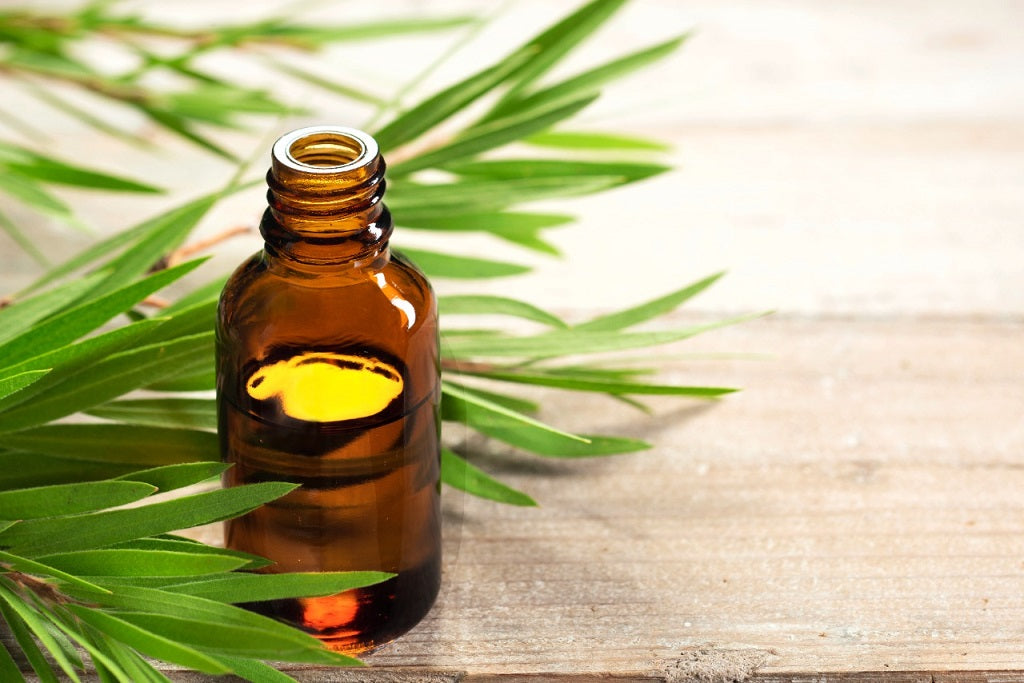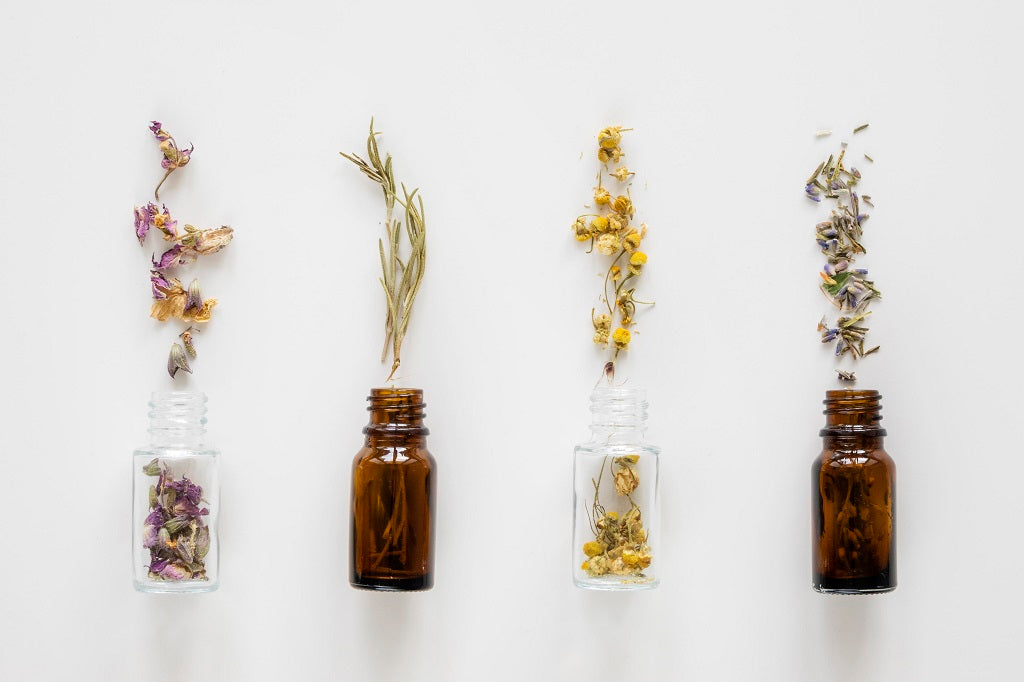For years tea tree oil has been touted as an exceptional natural ingredient to clear acne and pimples. This blog will revisit the benefits of this amazing oil and showcase it as an excellent pimple and blemish healer. We will be discussing how it has antiseptic and anti-inflammatory powers to clear acne as a quick fix.
What Is Acne?
In scientific terms, acne is described as an inflammatory chronic skin condition. Our immune system reacts to certain microbial invasions, resulting in pink or red spots on the skin that can be painful.
Also Read : 6 Reasons For Acne
Experts recommend Melaleuca alternifolia or tea tree oil as an effective treatment for acne.
What Is Tea Tree Oil?
Tea tree oil is an essential oil derived from a plant native to Australia known as Melaleuca alternifolia or tea tree. Indigenous Australians have used it for centuries to treat cough, cold and nasal congestion. This essential oil was also applied topically for skin healing. Its therapeutic property is attributed to the high level of an active ingredient- Terpinen-4-ol. This compound is known for its strong anti-inflammatory and antimicrobial properties. Tea tree oil is non-comedogenic, i.e., it won't clog your pores. This is why it has become a popular choice for treating acne for good reasons. The high level of antioxidants in tea tree oil is attributed to its healing property.
Though tea tree oil is considered effective for acne and acne scars, experts warn against using undiluted tea tree oil on pimples and acne or applying tea tree oil on popped pimples, as it can aggravate the condition.
ANVEYA AUSTRALIAN TEA TREE OIL, 100% PURE, 15ML

- Works on ACNE, SCARS & PIGMENTATION due to its antibacterial and anti-inflammatory properties
- Application in treating SKIN, NAIL & TOE INFECTIONS
- Great for HAIR. Fights against DANDRUFF with its antifungal properties
- Diffuse for fresh & CLEAN HOME
How Good Is Tea Tree Oil For Acne?
The benefits of tea tree oil for acne are aplenty. Let's try to understand how tea tree oil is beneficial for acne.
1. Exhibits Anti-bacterial Property
Terpinene-4-ol, the active ingredient in tea tree oil, possesses anti-bacterial properties. Known to be quite potent, this active ingredient can kill even the most virulent strains of bacteria, thus protecting your skin from bacterial infection.
2. Possesses Anti-Inflammatory Property
Due to its anti-inflammatory properties, tea tree oil is beneficial for acne-prone skin, reducing inflammation, redness, and itching.
3. Effective On Wide Range Of Acne
It effectively treats a wide range of acne, from inflammatory acne to comedonal acne. It reduces the number of lesions on the skin and the severity of the lesion, providing relief to people with acne-prone skin.
How To Use Tea Tree Oil For Acne?
There are many ways to use tea tree oil for acne. We will be listing a few important ones.
- Tea tree oil is used in numerous skin care formulations, such as face washes, toner, and moisturizers. But to get the desired result, you need to apply it 2 times a day for 8-12 weeks.
- Tea tree oil can be blended into a carrier oil and applied to acne or pimples as a spot treatment.
- You can also add tea tree oil to any existing acne treatments. You can mix it with topical acne medication for greater efficacy.
- You can add a few drops of tea tree oil to your clay face mask, effectively treating acne and absorbing excess oil from your skin.
The anti-bacterial, anti-fungal, and anti-inflammatory properties of tea tree oil, accompanied by other skincare benefits, have proven effective in treating acne and pimples. Its non-comedogenic property effectively unclogs the skin's pores, unplugging dirt and grime accumulated inside the pores, giving you clean and clear skin.
Also Read : Tea Tree Oil For Acne Benefits, Uses And More
Tea Tree Oil Acne Treatment DIY
Tea tree oil has antiseptic properties which help control acne, pimple, and other skin-related problems. Essential oils are a holy grail for your skin and hair but should be used with care as they are quite potent. A little goes a long way, so you should always use essential oil in moderation. Applying tea tree oil on the popped pimple can aggravate the condition. So, make sure that you dilute it well with a carrier oil such as jojoba oil, almond oil, or coconut oil before topical application. Many DIY treatments can be easily done at home for treating various acne conditions.
1. Tea Tree Oil For Acne Scars
Mix 2-3 drops of tea tree oil to 1 tablespoon of jojoba oil. Apply this mixture to your acne scar daily before going to bed. Leave it overnight and wash it off in the morning. Do this process regularly for the desired result.
2. Tea Tree Oil Spot Treatment For Acne
Mix 4-5 drops of tea tree oil with 2 teaspoons aloe vera gel to treat acne spots. Store it in a glass jar. Use a cotton earbud or Q-tip to apply the mixture of the spot. Apply it twice daily after washing your face. Instead of aloe vera, any carrier oil such as almond oil or jojoba oil can also be used.
3. Tea Tree Oil For Fungal Acne
Add 4-5 drops of tea tree oil to 1 tablespoon of olive oil. Mix well and apply to the affected area with a cotton swab. This is an effective treatment for fungal acne.
4. Tea Tree Oil Over Night Face Mask For Acne
Take 2-3 drops of tea tree oil, 1 tablespoon of aloe vera, 1 teaspoon of coconut oil. Mix well and store the contents in a glass jar. Apply this face mask every night before going to bed.
Can We Apply Tea Tree Oil Directly On Face?
You cannot apply tea tree oil or any other essential oil on your skin directly as it can cause skin inflammation and allergic reaction. All essential oils are potent; hence, dilute them well before topical application.
Can You Leave Tea Tree Oil On Face Overnight?
After proper dilution, with aloe vera gel or any carrier oil, you can leave the mixture on your face overnight. Experts warn against using undiluted tea tree oil on your face as it can cause inflammation, redness, swelling, and other allergic reactions on the skin.
How To Dilute Tea Tree Oil For Acne?
Before topical application, the tea tree oil should always be diluted with an appropriate carrier oil. For dilution, you can use aloe vera gel, coconut oil, olive oil, almond oil, or jojoba oil. The suggested ratio of tea tree essential oil dilution is 1:5, i.e., 1 drop of tea tree oil for 5 drops of carrier oil. After dilution, it is always good to do a patch test to check for any allergic reaction.
Also Read : How To Dilute Tea Tree Oil For Acne - Free Skin?
Disclaimer: All the content on anveya.com/blogs is solely for information. It is not intended to be a substitute for professional medical advice, diagnosis or treatment. Always seek the advice of your physician or a qualified health care provider. The information, suggestion or remedies mentioned on this site are provided without warranty of any kind, whether express or implied.


